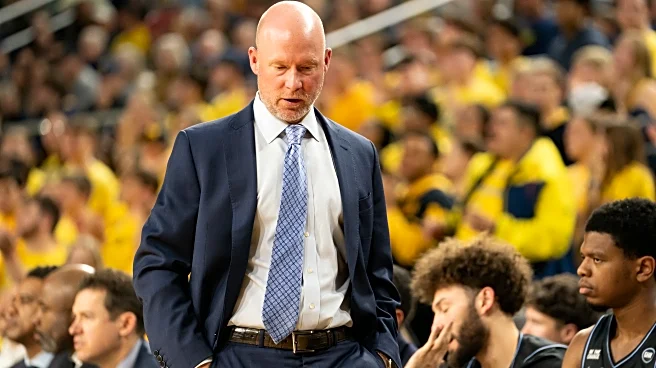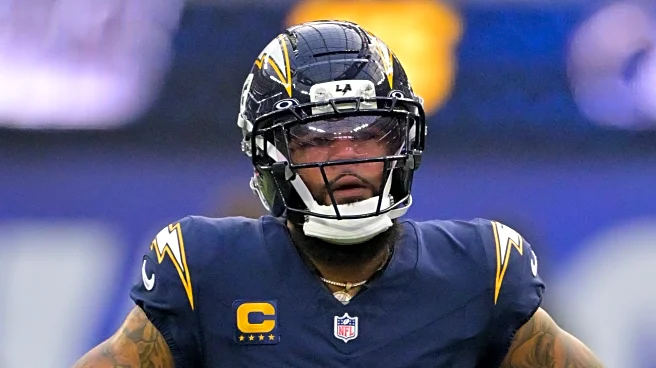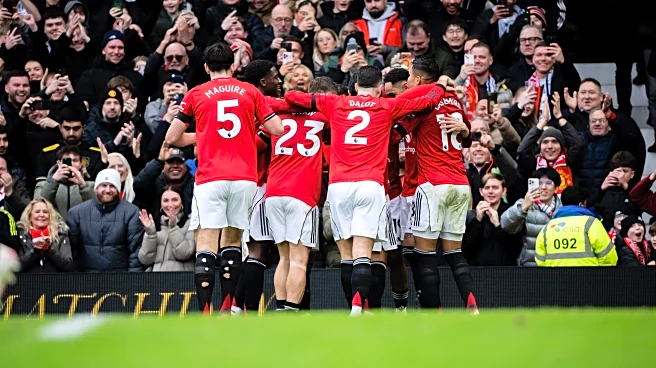Rapid Read • 9 min read
European leaders from France, the United Kingdom, and Germany are set to join Ukrainian President Volodymyr Zelensky at the White House for discussions with President Trump regarding the ongoing war in Ukraine. This meeting follows a previous encounter in February where tensions were high between Trump and Zelensky. The presence of European leaders aims to support Zelensky and prevent Ukraine from being pressured into a peace deal that Trump is keen to broker with Russia. The European Commission President Ursula von der Leyen, NATO Secretary-General Mark Rutte, French President Emmanuel Macron, British Prime Minister Keir Starmer, and German Chancellor Friedrich Merz are expected to attend. Their participation underscores Europe's determination to have a voice in the peace-making process, especially after Trump's recent summit with Russian President Vladimir Putin, which excluded Zelensky.
AD
The involvement of European leaders in the talks is significant as it highlights the geopolitical stakes surrounding the Ukraine conflict. Their presence aims to ensure that European interests are considered in any potential peace negotiations, which could have profound implications for regional security and the balance of power in Europe. The meeting is crucial for Ukraine, which seeks to avoid being sidelined in discussions that could affect its sovereignty and future alliances. The European leaders' support may bolster Zelensky's position and influence the direction of the talks, potentially impacting NATO and EU relations with Ukraine. The outcome of these discussions could affect international diplomatic strategies and the stability of Eastern Europe.
The next steps involve navigating the complex diplomatic landscape as European leaders aim to shape the agenda of the talks. They must balance their support for Ukraine with the broader goal of achieving a sustainable peace agreement. The potential for a ceasefire remains uncertain, with U.S. Secretary of State Marco Rubio suggesting that a full peace deal is preferable. European leaders will need to coordinate their messages to avoid sending mixed signals, while President Trump and Putin's positions will continue to influence the negotiations. The outcome of these talks could redefine Ukraine's relationship with NATO and the EU, and impact future diplomatic engagements.
The deeper implications of this meeting involve the strategic positioning of Europe in global politics. The presence of multiple European leaders signifies a unified front against potential Russian influence in Ukraine. This could lead to long-term shifts in how Europe engages with both the U.S. and Russia, potentially affecting international alliances and security policies. The ethical dimensions of negotiating peace while ensuring Ukraine's sovereignty and territorial integrity are also at play, as leaders must balance diplomatic pragmatism with moral obligations.
AD
More Stories You Might Enjoy











